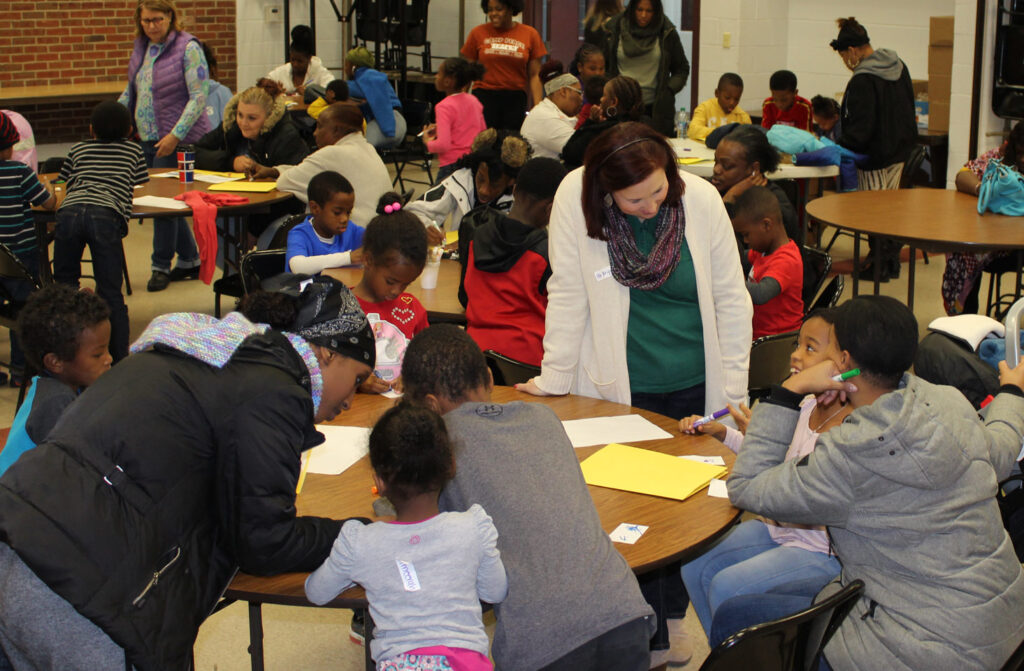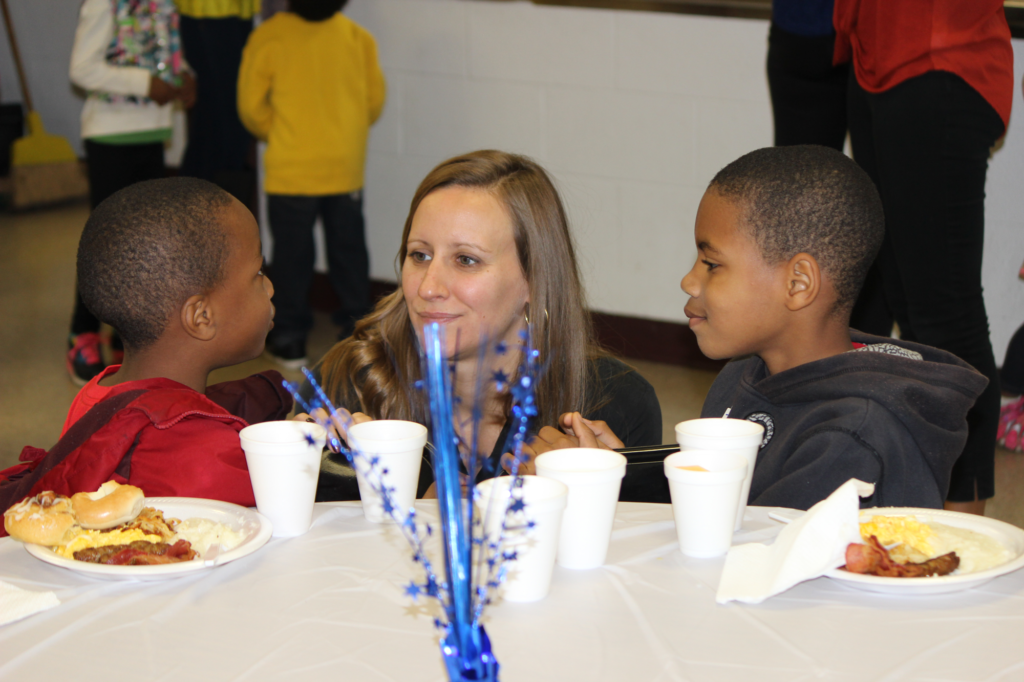 In 2019, Peace introduced the Saturday Reading Champions Academy to help “champion” and strengthen early literacy at home for our families with early elementary school children. Developed in partnership with the Ann Arbor Public Schools (AAPS), the five-week program invited Peace families to learn more about literacy — and shared special resources, strategies, and tools to support a range of literacy activities at home.
In 2019, Peace introduced the Saturday Reading Champions Academy to help “champion” and strengthen early literacy at home for our families with early elementary school children. Developed in partnership with the Ann Arbor Public Schools (AAPS), the five-week program invited Peace families to learn more about literacy — and shared special resources, strategies, and tools to support a range of literacy activities at home.
The program had an immediate impact for Peace families. And teachers appreciated the chance to connect with parents outside of school on a personal level—which helped to build trust and reinforce that they’re all part of a team in their child’s education.
An important component of Peace’s academic support has always been the critical connection we provide between home and school. Peace works closely with neighborhood schools, administrators, and students’ teachers to ensure Peace youth have the support they need to succeed academically, socially, and emotionally
Peace’s original motivation was to introduce more family-centered programming for families with young children. We wanted to develop a reading program that fit within the AAPS district’s curriculum, designed with Peace kids and families in mind. Peace reached out to Abbot Elementary School, and Abbot’s Title I Teacher (Colleen McAlinden) and Building Literacy Expert (Emily Wark) took the lead developing the new program’s curriculum and content. They also reached out to their respective counterparts at Dicken, Haisley, and Lakewood to bring more teachers on board.
The response from teachers was overwhelmingly positive. 24 teachers from four elementary schools volunteered their time on a Saturday morning to work with Peace parents. The five-week program included a fun breakfast to build community between teachers, parents, and students; fun reading activities for 35 elementary-aged children; and special workshops for parents. Emily Wark noted:
“Taking the time to have breakfast together gave us a chance to get to know one another as people first. I was pregnant with my third child at the time, and the moms at my table talked about their own experiences with pregnancy and babies . . . all the stuff mothers talk about. It really helped break the ice and create a sense of trust.”
After breakfast, teachers met with parents to share what their children were learning in school and to introduce what literacy could look like at home and “on-the-go”. Workshops covered a range of topics: technology, free apps, and library resources to support literacy; suggestions for fun reading activities; and writing prompts to encourage creative writing at home.
Parents actively participated beyond the teachers’ presentation. Colleen McAlinden noted: “It was really wonderful to see how parents started dialoguing with one another—and to see their comfort level go up as they shared their own ideas and recommendations.”
One of the program’s biggest impacts was providing an opportunity to build trust among teachers, parents, and young students, which helps to build a shared commitment to a child’s education. McAlinden noted:
“It’s not just about how Peace helps kids, it’s also about what Peace does for us―as teachers. Peace helps us establish trusting relationships with parents, and gives us the opportunity to get to know our students’ families better. We get a better understanding of what families think about education given their own experiences. It’s 100% important that we understand and acknowledge that not all families have had positive experiences at school. It gives us the chance to show families that we care about them, value them, that we’re all part of a team in their child’s education. It goes a long way when we have the chance to meet with parents at Peace―a place they trust. And when our students see us there, they are more likely to buy into what we’re asking them to do. Special connections are made that translate back at school.”
Peace is seeking to re-invest in the Saturday Reading Champions program, as well as specialized reading support for all Peace youth—especially important for students who have IEP’s (Individual Education Plans) and need additional academic support. The ultimate goal is to ensure Peace youth make the leap from “learning to read” in the early grades to “reading to learn”—to build a strong foundation so they can succeed academically and continue to learn.
